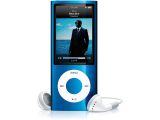After two weeks of deliberations, the decade-long antitrust lawsuit involving iPods, iTunes, and DRM has finally come to an end. Apple was the victor, but the accusing side is already preparing an appeal.
Addressing the jury as the final statements had been made, Judge Gonzalez Rogers ordered them to carefully determine whether or not Apple’s iTunes 7.0 firmware was a product improvement, not just a way to thwart competition. The judge stressed that Apple should not be held liable for preventing its products from being interoperable, since the law says it has no duty to assist competitors.
iTunes 7.0 firmware deemed good
The jury, comprising eight individuals, declared iTunes 7.0 a “genuine product improvement,” highlighting not only the new features it brought, but also tightened security, which was paramount in this case, since it was believed that Apple’s primary reason was to keep iPods out of harm’s reach.
Apple's lawyers initially declined to comment, but the company soon released a statement, saying, “We thank the jury for their service and we applaud their verdict. We created iPod and iTunes to give our customers the world’s best way to listen to music. Every time we've updated those products — and every Apple product over the years — we’ve done it to make the user experience even better.”
Plaintiffs to appeal decision
Attorney Patrick Coughlin said the plaintiffs already had an appeal prepared, which means the saga is far from over.
Apple would have incurred a $350 million / €280 million fine had the Court found it liable of intentionally harming consumers while attempting to harm competitors’ businesses. Under existing antitrust laws, that sum would have ballooned to over a billion dollars (around €800 million), according to reports.
To fend off these accusations, Apple used an arsenal of arguments put forth by key figures in the company, including iTunes boss Eddy Cue, Marketing Chief Phil Schiller, a security director, and even the late Steve Jobs in the form of a video deposition recorded in 2011, some six months before the CEO’s death.
Every single person representing Apple stressed that the company did no harm in building a walled garden around its music business. The company also noted that its contracts with the music labels downright forced it to regard competitors as hackers of the iPod, when these companies were trying to capitalize on the hype surrounding the popular portable players. Skim through the related stories below for more information on this class action suit.

 14 DAY TRIAL //
14 DAY TRIAL // 


